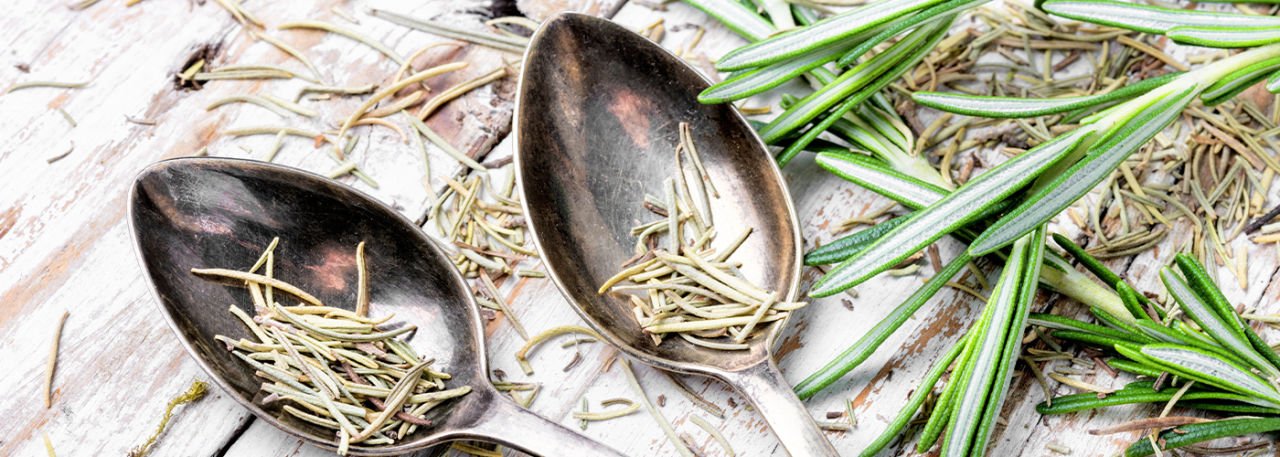ROSEMARY OIL AND ITS BENEFITS

ROSEMARY OIL AND ITS BENEFITS
What Is Rosemary Oil?
Rosemary, which Latin name is Rosmarinus officinalis, is a thin-leaved plant of Lamiaceae family.(*) Rosemary grown in the Mediterranean and surrounding countries and is a bush-like plant with fine leaves and purple flowers. Rosemary can be used in many different fields and different forms from the food industry to the beauty industry.
The Benefits of Rosemary Oil
• Rosemary oil has antibacterial and antioxidative effects. (1)
• It is antioxidant and antimicrobial. (2,3,4)
• Rosemary oil is used to treat pain such as headaches and rheumatic pains. (5,6)
• It is good for forgetfulness and fatigue. (7)
• Rosemary oil has a healing effect on skin wounds. (8)
• Used in bronchial tube and throat inflammation, respiratory system disorders, especially in asthma. (9)
Many benefits of rosemary oil have been proven by scientific researches. For more comprehensive information on the benefits of rosemary oil, we recommend you to take advantage of scientific researches.
How to Obtain Rosemary Oil?
Rosemary oil is obtained by steam distillation method. Distillation is one of the leading unbundle processes dated back to ancient times and used for thousands of years. It is the most used method in essential oil production. The process is carried out by applying only water, water vapor or both to the plant. Distillation is the separation process that takes advantage of the different volatility of the components which creates a mixture.
1) Water distillation
2) Steam distillation
3) Water-steam distillation
To learn more information about how herbal oils are obtained you can read our article "Herbal Oil Production Methods".
How and Where is Rosemary Used?
Thanks to the rosemary smell and taste, it is used in many different areas and in many different forms. Dried rosemary takes its place on spice rack and be used for in meals which is one of the main usage areas. Dried rosemary, which is preferred being used for meals due to its aroma, is also consumed as a type of tea due to its flavor and benfits.
Rosemary, whose usage area is not limited to the kitchen, is available as a cologne thanks to the smell and also being used as a gel and soap thanks to its antibacterial features.
You can drip a few drops of rosemary oil to the needed area on your body and spread them over by massaging.
In addition to many features of rosemary oil, which has a soothing and relaxing feature with its smell, is also used in aromatherapy blends.
References;
(2) Gachkar L, Yadegari D, Rezaei M B, Taghizadeh M, Alipoor AS, Rasooli
(3) Baratta MT, Dorman HJD, Deans SG, Biondi DM, Ruberto G
(4) Moghtader M, Afzali D
(5) Mc INTYRE , M., MICHAEL, P., DUFF, G., STEVENS, L., 1984. The Complete New Herbal. (Ed:R.Mabey). Penguin Books, London.
(6) Analgesic effects of rosemary essential oil and its interactions with codeine and paracetamol in mice.
(7) Baydar, H. 2009. Tıbbi ve Aromatik Bitkiler Bilimi ve Teknolojisi. SDÜ Ziraat Fakültesi Yayın No: 51, ss.122-123.
(8) Essential oil-loaded lipid nanoparticles for wound healing.
(9) Karamanoğlu, K. 1977. Farmasötik Botanik Ders Kitabı. Ankara Üniversitesi, Eczacılık Fakültesi Yayınları, Ankara, 483 s.
